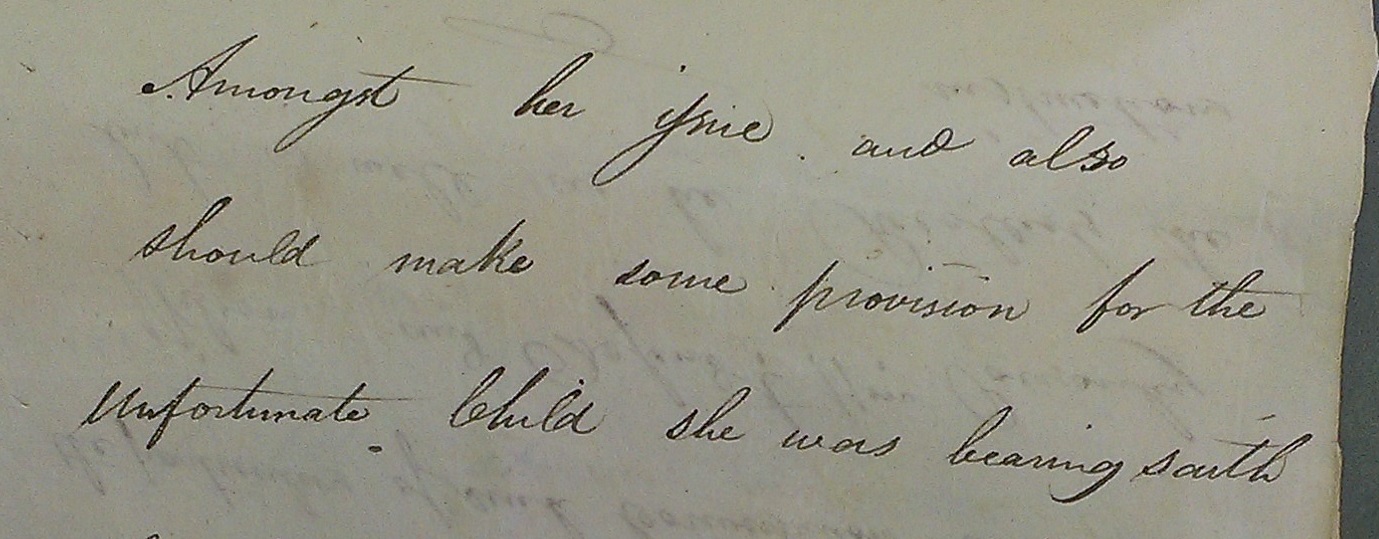
Louisa Ponsonby,
|
The scandal of 1825: The unmarried Louisa Ponsonby becomes pregnant.
In June 1825, Louisa was unmarried, and became pregnant, which would have been a great scandal. She was secluded at Crotto House with her uncle William Ponsonby's family. A later witness (see below) said that in 1825 they believed that "from the peculiar circumstances of her situation she was unwilling to appear much in society". Her cousin William Ponsonby junior said that in 1825 she was "in deep affliction and mental distress", stayed mainly in her room, would only meet family, would not meet with society. A witness said "she was ashamed of appearing to visitors or strangers at Crotto house". In this condition, in [Deed, 1825] she then disinherits her own unborn illegitimate child in favour of her Ponsonby relations (her sister and her uncle's family) who will receive her (huge) inheritance if she has no lawful issue, nothing for her child, and nothing for her mother either. She signed the deed in Crotto House in June 1825. [Deed, 1825] is about her inheritance of £2,000, her share of the £4,000 inheritance on Ponsonby lands in Co.Kerry. She makes over her inheritance unto (must be trustees) James Crosbie of Ballyheige Castle, Co.Kerry, Colonel of Kerry Regiment of Militia, and William Sandes of Pyrmont House, Co.Kerry, witnessed by Pierse Crosbie of Ballyheige, and John Herbert of Crotto, carpenter. Her uncle William was present when Louisa signed.
She later regrets this deed,
and accuses her uncle's family of having pressurised her
when she was distressed, and staying in their house.
She did not marry her lover.
The child is not mentioned as alive in the 1827 case
(which would be sorting out its inheritance).
It must have died.
The child is not mentioned in later documents.
The fact that she won her case
may indicate that the child died
so there were no longer any complications about her inheritance.
|
Louisa dies, 1836:
She died in childbirth in
Aug 1836
[Case, 1852].
She was
buried on the day her child was baptised.
She was
bur 1 Sept 1836 in St.Munchin's, Limerick
[St.Munchin's parish records].
This is
St.Munchin's (Church of Ireland),
Church St, Limerick
(see
street view),
now no longer used as a church.
Not to be confused with
St.Munchin's (Catholic).
No Monsell gravestone found in map of St.Munchin's gravestones
(map held at Limerick Cathedral).
No admin found in
[NAI].
William
might be
William R. Monsell,
Apothecary,
House of Industry,
North Strand, Limerick,
who is
listed under
Hospitals, Infirmaries, Asylums etc.
in
[Deane's Limerick Directory, 1838, p.41].
He might be
William Monsell,
Committee, Limerick Horticultural Society,
who is
listed
in
[Deane's Limerick Directory, 1838, p.55].
William Rumley Monsell, of Limerick,
is party to
[Deed, 1842]
about the Ponsonby inheritance.
Can't find him in
[Slater's directory, 1846].
|
The 1852 case:
There was a case, "Blennerhasset v. Monsell", in the Court of Chancery, 9 and 10 May 1851, and 26 Jan 1852. This was a dispute about Louisa's inheritance, between John Blennerhassett, plaintiff (must be Louisa's uncle) and William Rumley Monsell, Letitia Lindsay and others, defendants. It seems John Blennerhassett was still owed money from Louisa, and needed this paid by her heirs out of her inheritance. The case says that Louisa's marriage settlement assigned to her an inheritance that was not yet hers at marriage - that her mother Letitia was entitled to part of the Ponsonby inheritance while she lived: "this money she [Louisa] was not entitled to until the death of her mother, now Mrs. Lindsay, who is still alive, and to the interest of which the latter is still entitled for her life." There is a legal declaration about this dated 25 Apr 1853, printed in Freemans Journal, May 14, 1853. It refers to a decree of the High Court of Chancery, 8 Nov 1852. It says that Letitia is entitled to part of the Ponsonby inheritance. |
William is not listed in Limerick in
[Slater's directory, 1856].
Louisa and William
had issue:
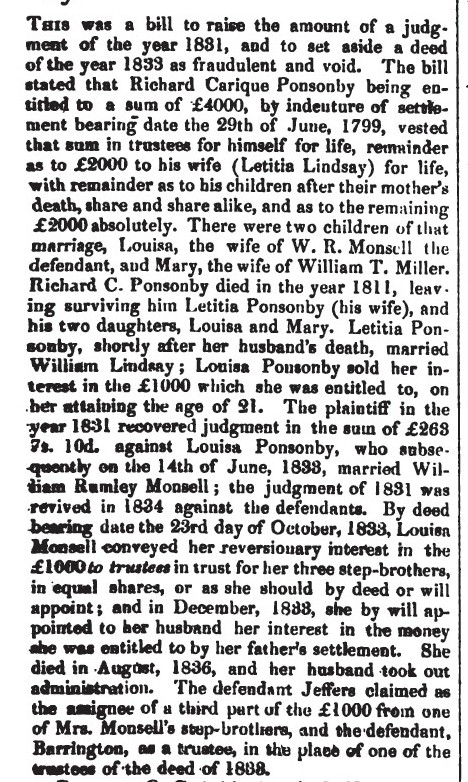
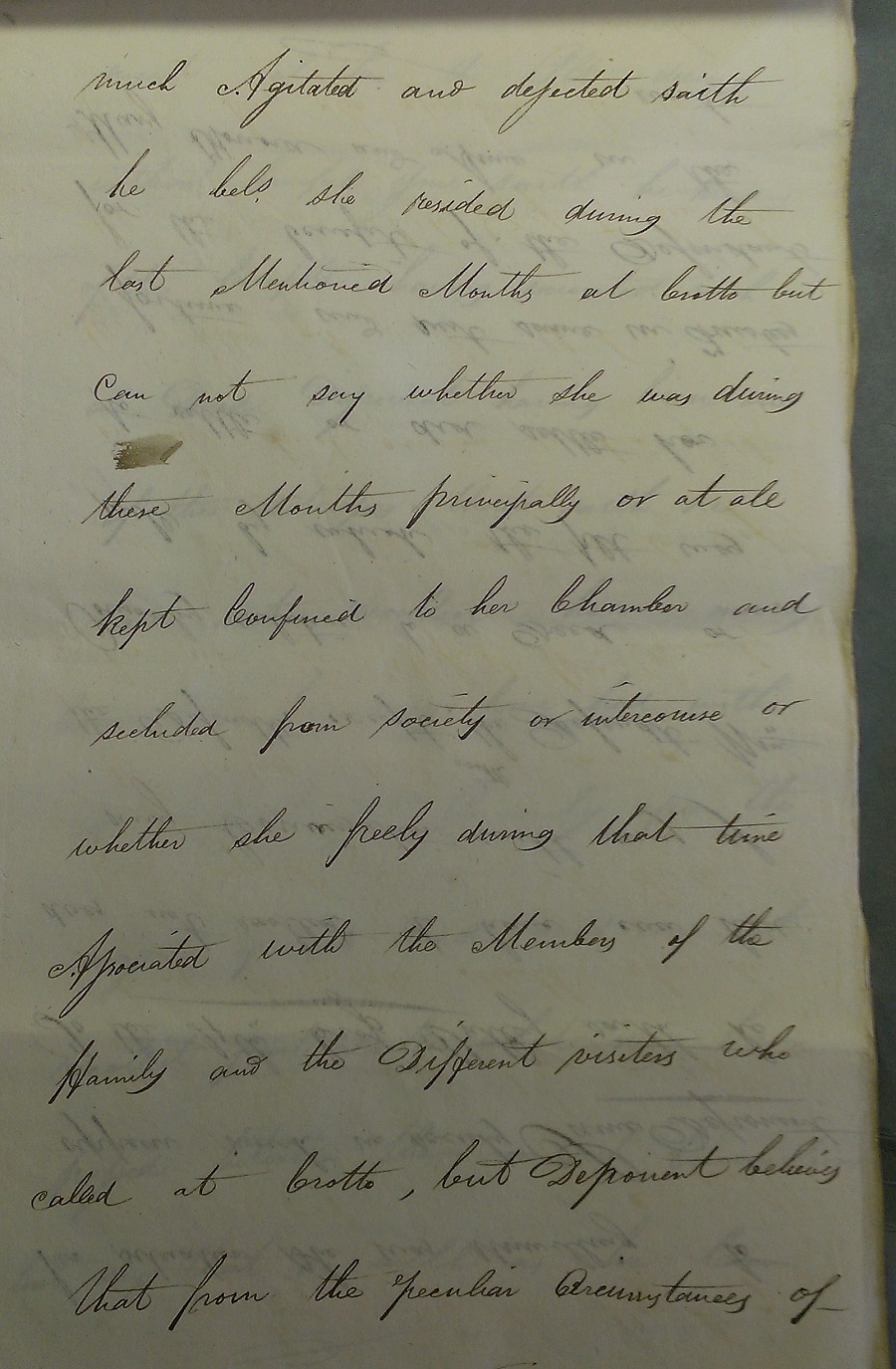

A witness
said in
[Ms 20608, 1827 document]
that in 1825 Louisa was in Crotto, and possibly confined to her room and not seeing any visitors.
Witness
"believes that from the peculiar circumstances of her situation
she was unwilling to appear much in society".
Top:
See larger
and full size.
Bottom:
See larger
and full size.
Elsewhere
a witness says she
"remained principally but entirely by her own wish
in her Chamber
..
she freely associated with all the members of the family
..
but chose to keep herself secluded from the different visitors who happened to call at Crotto".
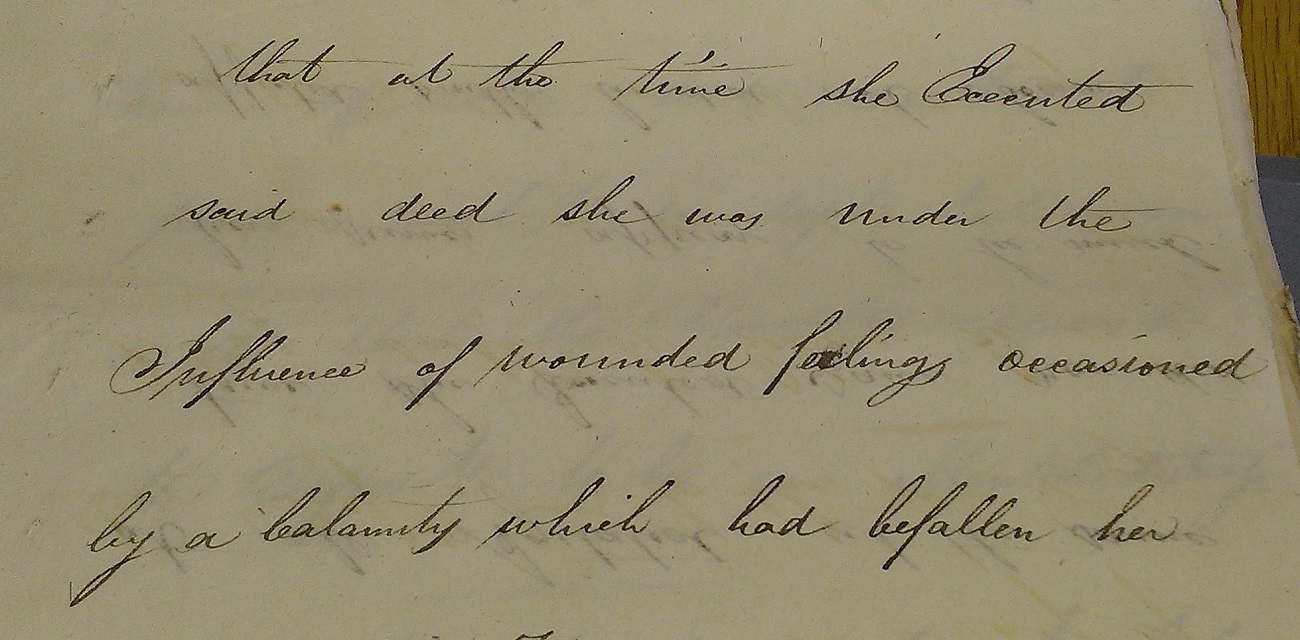
A witness said that in 1825 Louisa
"was under the influence of wounded feelings occasioned by a calamity which had
befallen her".
See larger
and full size.
Elsewhere
a witness says she
"was under the influence of wounded feelings at the time in consequence of the calamity which had
befallen her. ... She had been crying."
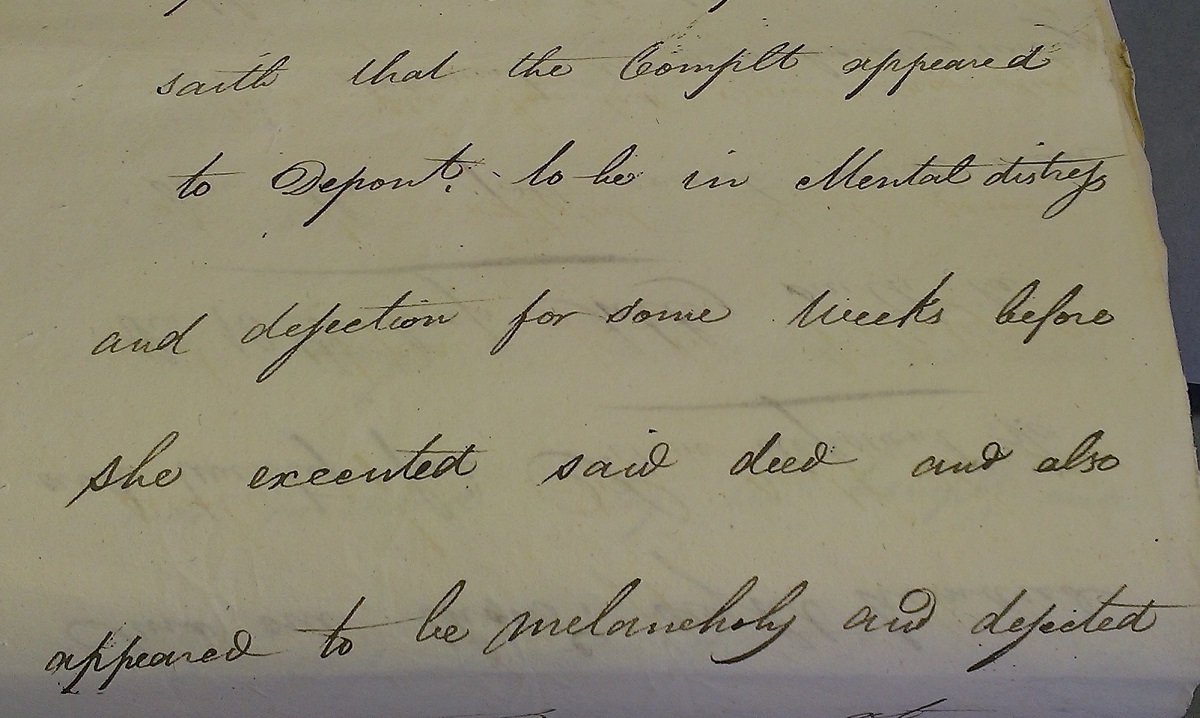

A witness said that in 1825 Louisa appeared
"to be in mental distress and dejection for some weeks before she executed said deed"
and at the signing
"her eyes appeared to be swollen from tears".
Top:
See larger
and full size.
Bottom:
See larger
and full size.
Please donate to support this site.
I have spent a great deal of time and money on this research.
Research involves travel and many expenses.
Some research "things to do"
are not done for years, because I do not have the money to do them.
Please Donate Here
to support the ongoing research and
to keep this website free.